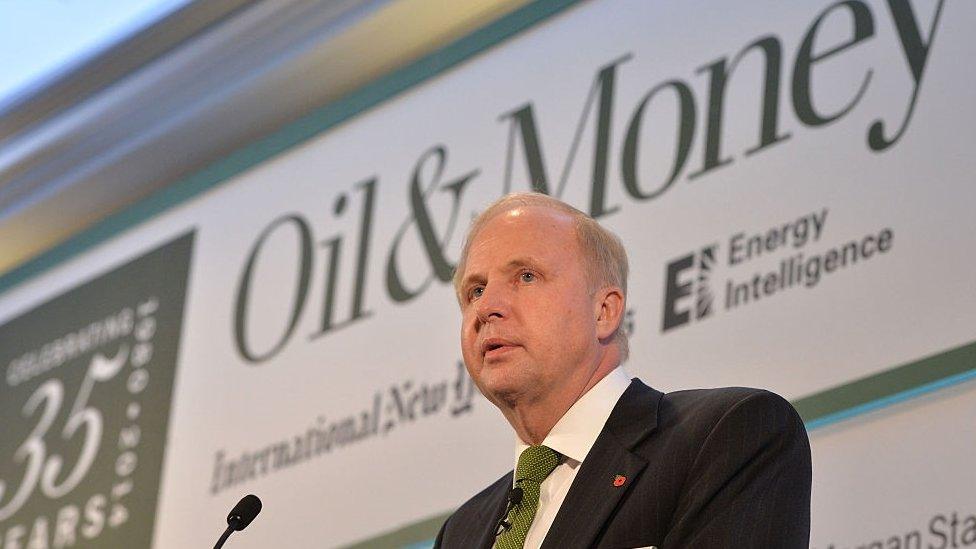Does BP's Bob Dudley 'deserve' £14m?
- Published
- comments

This could be a short blog. Giving someone a 20% pay rise for a year's work that saw BP record its biggest ever operating loss seems perverse even by chief executive pay standards.
Didn't we have a shareholder spring in 2012 when fund managers and pension funds made it clear the days of big rewards for failure were over?
To make sense of this baffling pay award we need to look at what we mean by failure. BP had two very big challenges to overcome last year.
One was industry wide, one specific to BP. The oil price crash which started in in June 2014 punched a hole in oil company profits across the board. Old rival Shell saw its profits slump by 80%. It would be hard to argue that the oil crash was Bob Dudley's "fault".
The formula for his pay relates to how well BP did relative to other oil companies. On this measure Bob Dudley was a success. BP shares fell less than Shell, Chevron or Exxon in 2015.
The second challenge BP faced was the shadow cast by the Deepwater Horizon disaster of 2010 which cost 11 people their lives and cost the company $50bn. Settling the bill for this disaster and reshaping the company in its aftermath was the key challenge of Bob Dudley's career and this was the year he concluded that. He also reportedly exceeded safety at work targets set after the accident.
If it's any consolation, (I doubt it will be), bosses at Exxon and Chevron got paid even more than Bob Dudley even though the value of their companies fell by more than BP. That's the bit that sticks in the craw for many. Under what circumstances don't these guys get paid a fortune? It would be fine if some years you win, some years you lose - but they never seem to lose.
We may get a rebellion of 20-30% of shareholders today but even if it was more than 50%, the board doesn't have to listen. Shareholders do have a binding vote every three years on the pay policy and formula. No use crying now, the formula that spat out £14m for Bob Dudley was approved in 2014 by 96% of shareholders.
- Published11 April 2016
- Published7 April 2016